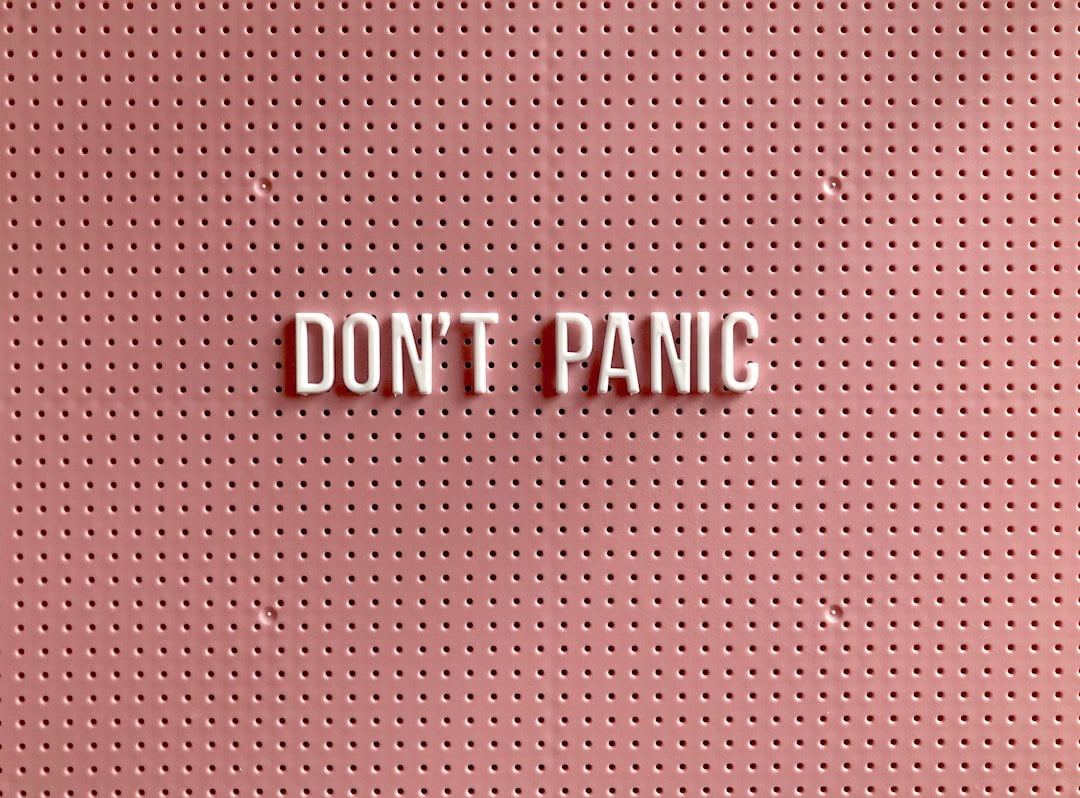
Understanding and overcoming depression: Tips and resources
Depression is a mental health disorder characterized by persistent feelings of sadness, hopelessness, and a loss of interest in activities. It affects millions of people worldwide and can have a significant impact on their daily lives. According to the World Health Organization (WHO), depression is the leading cause of disability globally, and it is estimated that over 264 million people suffer from depression worldwide.
Addressing depression is crucial because it not only affects the individual’s mental health but also their physical health, relationships, and overall quality of life. Depression can lead to a variety of symptoms, including changes in appetite and sleep patterns, difficulty concentrating, fatigue, and even thoughts of self-harm or suicide. It is essential to recognize the signs and symptoms of depression to seek help and support.
Key Takeaways
- Depression is a serious mental health condition that can have a significant impact on a person’s life.
- Recognizing the symptoms of depression is important in order to seek appropriate treatment.
- Biological, environmental, and psychological factors can all contribute to the development of depression.
- There are many myths and misconceptions about depression that can prevent people from seeking help.
- There are different types of depression, including major depression, dysthymia, bipolar disorder, and seasonal affective disorder, each with their own unique symptoms and treatment options.
Recognizing the Symptoms of Depression
Common symptoms of depression include persistent feelings of sadness, hopelessness, and emptiness. Individuals may experience a loss of interest or pleasure in activities they once enjoyed. Other symptoms may include changes in appetite and weight, sleep disturbances, fatigue or loss of energy, difficulty concentrating or making decisions, feelings of worthlessness or guilt, and recurrent thoughts of death or suicide.
It is important to note that depression is different from sadness. While it is normal to feel sad or down at times, depression is characterized by persistent feelings that last for weeks or months and significantly impact daily functioning. If these symptoms persist for an extended period and interfere with daily life, it is crucial to seek help from a mental health professional.
Causes of Depression: Biological, Environmental, and Psychological Factors
Depression can be caused by a combination of biological, environmental, and psychological factors. Biological factors include genetics and brain chemistry. Research has shown that individuals with a family history of depression are more likely to develop the disorder themselves. Additionally, imbalances in certain neurotransmitters in the brain, such as serotonin and dopamine, have been linked to depression.
Environmental factors can also contribute to the development of depression. Life events such as the loss of a loved one, divorce, financial difficulties, or chronic illness can trigger depressive episodes. Chronic stress, whether related to work, relationships, or other factors, can also increase the risk of developing depression.
Psychological factors play a significant role in depression as well. Negative thinking patterns, such as persistent self-criticism or a tendency to focus on the negative aspects of life, can contribute to the development and maintenance of depressive symptoms. Additionally, individuals with low self-esteem or a history of trauma are more susceptible to depression.
Common Myths and Misconceptions about Depression
There are several common myths and misconceptions surrounding depression that can hinder understanding and treatment. One myth is that depression is a choice or a sign of weakness. In reality, depression is a complex mental health disorder that is not within an individual’s control. It is not a reflection of personal strength or weakness.
Another myth is that depression can be cured by positive thinking alone. While maintaining a positive mindset can be helpful in managing depressive symptoms, it is not a cure for depression. Depression often requires a combination of therapy, medication, and lifestyle changes to effectively manage and treat.
Types of Depression: Major Depression, Dysthymia, Bipolar Disorder, and Seasonal Affective Disorder
There are several different types of depression, each with its own set of symptoms and treatment options. Major depression is the most common type and is characterized by persistent feelings of sadness, hopelessness, and a loss of interest in activities. It often interferes with daily functioning and can lead to physical symptoms such as changes in appetite and sleep patterns.
Dysthymia is a milder form of depression that lasts for at least two years. While the symptoms may not be as severe as major depression, they can still have a significant impact on daily life.
Bipolar disorder is a mood disorder characterized by alternating periods of depression and mania. During manic episodes, individuals may experience elevated mood, increased energy, and impulsive behavior.
Seasonal affective disorder (SAD) is a type of depression that occurs during specific seasons, typically winter. It is thought to be caused by a lack of sunlight and can be effectively treated with light therapy.
Treatment options for these different types of depression may include therapy, medication, and lifestyle changes.
Overcoming Depression: Self-Help Strategies and Professional Treatment Options

There are several self-help strategies that can be effective in managing and overcoming depression. Regular exercise has been shown to improve mood and reduce symptoms of depression. Engaging in activities that bring joy and a sense of accomplishment can also be helpful. Practicing mindfulness and relaxation techniques, such as deep breathing or meditation, can help reduce stress and promote emotional well-being. Journaling can provide an outlet for expressing emotions and gaining insight into one’s thoughts and feelings.
In addition to self-help strategies, professional treatment options are available for individuals struggling with depression. Therapy, such as cognitive-behavioral therapy (CBT), can help individuals identify and change negative thinking patterns that contribute to depression. Medication, such as antidepressants, may also be prescribed to help manage symptoms.
Building a Support System: Friends, Family, and Mental Health Professionals
Having a strong support system is crucial for individuals struggling with depression. Friends and family members can provide emotional support, understanding, and encouragement. They can also help with practical tasks or accompany the individual to therapy appointments or doctor visits.
Mental health professionals, such as therapists or counselors, play a vital role in providing support and guidance for individuals with depression. They can help individuals develop coping strategies, explore underlying issues contributing to depression, and provide a safe space to express emotions.
Lifestyle Changes to Improve Mental Health: Exercise, Nutrition, and Sleep
Making lifestyle changes can have a significant impact on mental health and help manage depression. Regular exercise has been shown to improve mood and reduce symptoms of depression. Engaging in activities that bring joy and a sense of accomplishment can also be helpful.
Nutrition plays a role in mental health as well. A balanced diet that includes fruits, vegetables, whole grains, lean proteins, and healthy fats can provide the nutrients necessary for optimal brain function. Avoiding excessive caffeine, alcohol, and processed foods can also be beneficial.
Getting enough sleep is essential for mental health. Establishing a regular sleep schedule, creating a relaxing bedtime routine, and creating a comfortable sleep environment can help improve sleep quality.
Resources for Depression: Hotlines, Support Groups, and Online Communities
There are numerous resources available for individuals struggling with depression. Hotlines such as the National Suicide Prevention Lifeline provide immediate support and assistance for individuals in crisis. Support groups, whether in-person or online, can provide a sense of community and understanding.
Online communities and forums can also be valuable resources for individuals with depression. They provide a platform for individuals to connect with others who may be experiencing similar struggles and offer support and advice.
Breaking the Stigma: Encouraging Open Conversations about Mental Health and Seeking Help
Breaking the stigma surrounding mental health is crucial in encouraging individuals to seek help when needed. Open conversations about mental health can help reduce shame and promote understanding. It is important to educate others about depression and challenge misconceptions.
Encouraging individuals to seek help when needed is essential. Mental health should be treated with the same importance as physical health, and seeking professional help should be seen as a sign of strength rather than weakness.
In conclusion, depression is a common mental health disorder that affects millions of people worldwide. It is important to recognize the symptoms of depression, understand its causes, and seek help when needed. By breaking the stigma surrounding mental health and encouraging open conversations, we can create a supportive environment where individuals feel comfortable seeking help and receiving the support they need to overcome depression.
If you’re looking for more information on understanding and overcoming depression, I highly recommend checking out Wave Magnets. They have a wealth of resources and tips to help you navigate through this challenging journey. One article that particularly stood out to me is “The Power of Mindfulness in Managing Depression.” This insightful piece explores how practicing mindfulness can be a powerful tool in managing depressive symptoms. To read the full article, click here.
FAQs
What is depression?
Depression is a mental health disorder characterized by persistent feelings of sadness, hopelessness, and loss of interest in activities that were once enjoyable. It can affect a person’s thoughts, feelings, and behavior, and can lead to a variety of emotional and physical problems.
What are the symptoms of depression?
Symptoms of depression can vary from person to person, but may include feelings of sadness, hopelessness, and worthlessness, loss of interest in activities, changes in appetite and sleep patterns, fatigue, difficulty concentrating, and thoughts of suicide.
What causes depression?
Depression can be caused by a variety of factors, including genetics, brain chemistry, life events, and medical conditions. It is often a combination of these factors that contribute to the development of depression.
How is depression treated?
Depression can be treated with a variety of approaches, including therapy, medication, and lifestyle changes. It is important to work with a mental health professional to determine the best course of treatment for each individual.
What are some tips for overcoming depression?
Some tips for overcoming depression include seeking professional help, staying active and engaged in activities, practicing self-care, and building a support network of friends and family.
What resources are available for those struggling with depression?
There are many resources available for those struggling with depression, including mental health professionals, support groups, hotlines, and online resources. It is important to reach out for help and support when dealing with depression.


















